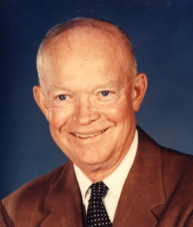He didn’t have to wait long either, because Brer Rabbit soon came pacing down the road as saucy as a jay-bird. Brer Fox, he lay low.
Brer Rabbit come prancing along until he spotted the Tar-Baby. The Tar Baby, she sat there and Brer Fox lay low.
“Good morning,” said Brer Rabbit, “Nice weather we’re having.”
The Tar-Baby said nothing. Brer Fox laid low and grinned an evil grin.
Brer Rabbit tried again. “And how are you feeling this fine day?”
Brer Fox winked his eye slowly and laid low in the bushes, and the Tar Baby, well, she said nothing.
“How are you then? Are you deaf?” said Brer Rabbit. “If you are, I can shout louder.”
Tar-Baby stayed still, and Brer Fox, he lay low.
“You’re stuck up, that’s what you are,” said Brer Rabbit, “I’ll cure you, that’s what I’ll do.” But Tar-Baby said nothing.
“I’m going to teach you how to talk respectable to people," said Brer Rabbit. ‘If you don’t take off that hat, I’m going to beat you up”.
Tar-Baby stayed still, and Brer Fox, he lay low.
Brer Rabbit keep on asking, and the Tar-Baby kept on saying nothing.
Presently, Brer Rabbit drew back his fist and hit the Tar-Baby on the side of the head. His fist stuck and he couldn’t get loose. The tar held him. But Tar-Baby, she stayed still, and Brer Fox, he lay low.
“If you don’t let me go, I’ll hit you again,” said Brer Rabbit, and with that he swiped again with the other hand, and that stuck. Tar-Baby said nothing and Brer Fox, he lay low.
“Let me go, or I’ll kick the stuffing out of you,” said Brer Rabbit, but Tar-Baby said nothing. She just hung on, and Brer Rabbit lost the use of his feet in the same way. Brer Fox, he lay low.
Then Brer Rabbit yelled out that if the Tar-Baby didn’t turn him loose he’d head butt her side-on. So he butted, and his head got stuck. Then Brer Fox sauntered out, looking as innocent as could be.
“Hiya, Brer Rabbit,” said Brer Fox. “You look sort of stuck up this morning,” and then he rolled on the ground, and laughed and laughed until he could laugh no more. “You’ll have to have dinner with me this time, Brer Rabbit. I’ve got some calamus root, and I won’t take any excuses.”
Joel Chandler Harris (1848-1908)
A rewrite of the Tar-Baby story, as told by Uncle Remus.
This is one of many metaphorical stories written by American folklorist Harris. He wrote of his period, social circumstances, and many of his stories were very parable like. As an teenaged apprentice on a Georgia plantation he learned many of the oral traditions of the African slaves he worked with. And he recorded them and introduced them to American society with his books.
Are there things in this particular story for our era? Do we have Tar-Babies in our midst? What are some of the things our society has for us that might get us stuck? How about:
1. Entertainment? Ask kids these days pop-culture questions or questions about things of import to us as citizens and which are they more informed after? Try that with many adults! What about video games and music? How much time is spent honing one's ability through involvement there? So many are stuck in that Tar-Baby!
2. Cell phones? Go anywhere, what are people doing as they are walking or standing or DRIVING!? I go to the grocery store or a restaurant or stand in line anywhere and many are buried in their phones. I drive down the road and other drivers are texting! Wonderful... So many are stuck in that Tar-baby!
3. Lobsters? Put a bunch of lobsters in a big bucket and if one tries to get out what do the others do? They reach up to pull him down! None can escape the others! People can be like that. "Geeks" are expected to try in school but pay for it socially. But what of those others, not thought to be "geeky," who want to do well also? How are they treated by the lobsters? When some in certain groups want to do well in society and "succumb" to "the man," they are berated and name-calling results! By whom? The lobsters! So many are stuck in that Tar-baby!
4. The unmotivated and uninspired? What generation hasn't had these? But it seems so rife today among the young set. Personal direction, if present at all, sometimes has tunnel vision with focus on fitting into some fringe aspect of society - gangs, clubbing, tattoos, weird jewelry, living forever in Mom's basement, and obtaining "free" entitlements. And the trend toward legalizing "recreational" drugs isn't helping. Using the word "recreation" to describe certain drugs is part of the lure! There is benefit there? So many are stuck in that Tar-baby!
Free enterprise participants can't get stuck in Tar-babies. They have to be on the move! They have to be a vibrant part of the system! For society to advance via free enterprise, for the general standard of living to improve via free enterprise, and for the economy to expand from here forward as it did in past decades via free enterprise, the populace (especially the rising generation) has to be educated, focused, goal-driven, moral and motivated! There is no time for any Tar-baby that might be in the road along the way. The enticing Tar-baby has to be avoided!
Free enterprise avoids the Tar-baby.







